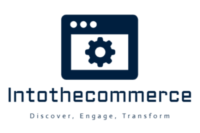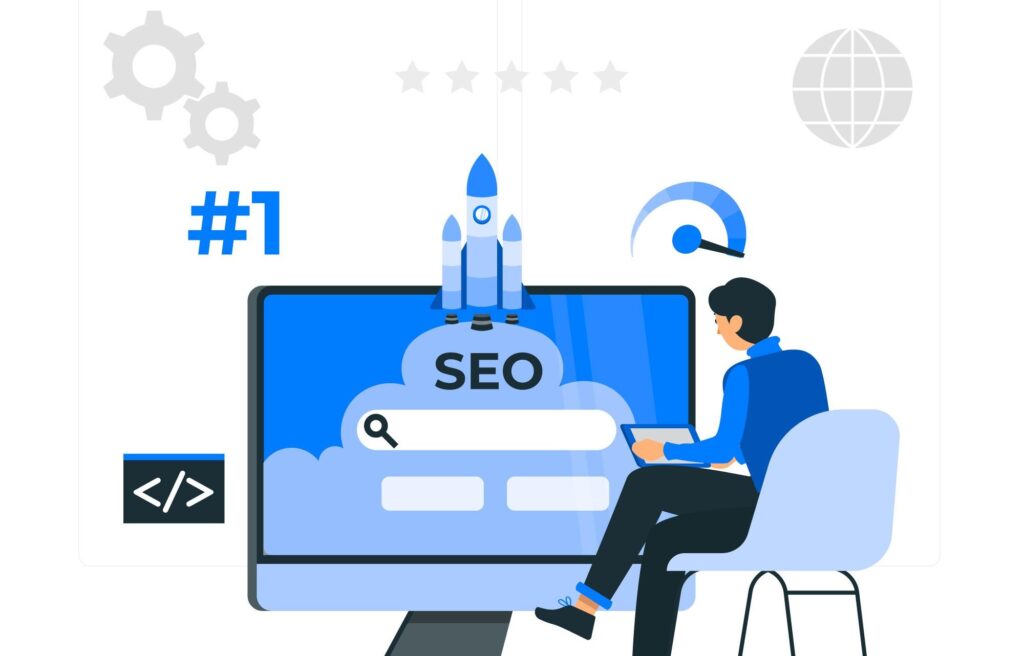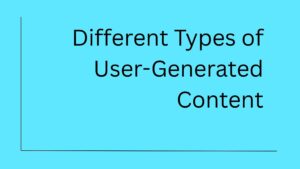No more arguments; the internet is a crowded place, with millions of websites vying for attention. How can your website stand out from the rest? The answer lies in understanding and applying Search Engine Optimization (SEO). Whether you’re a business owner, a marketer, or an enthusiast looking to learn the ropes, mastering SEO is key to improving your website’s visibility, driving more traffic, and ultimately, achieving online success. But what exactly is SEO, and why is it so crucial?
This guide will walk you through the essentials of SEO, covering its history, core concepts, and the techniques you need to boost your online presence. You’ll also discover the critical role search engine optimization plays in digital marketing and how it continues to evolve alongside advancements in AI and technology. Ready to dive in? Let’s start by understanding what Search engine optimization is all about.
What is Search Engine Optimization (SEO)?
SEO stands for Search Engine Optimization, a digital marketing strategy aimed at enhancing a website’s visibility on search engines like Google, Bing, and Yahoo. It involves optimizing your website’s content, structure, and technical elements to make it more appealing to search engines. The ultimate goal? To appear higher in search engine results pages (SERPs) when users search for terms relevant to your business or content.
When you type a query into a search engine, like “best coffee shops near me” or “how to bake a cake,” the engine’s algorithm scans through billions of web pages and ranks them based on factors like relevance, authority, and user experience. Search engine optimization ensures that your website meets these criteria, making it easier for search engines to recognize its value and display it to potential visitors.
The History and Evolution of SEO
The concept of SEO dates back to the mid-1990s, when the first search engines like AltaVista, Yahoo!, and Google began to shape the internet landscape. Initially, Search engine optimization was a simple game where webmasters would stuff keywords into their content, add meta tags, and achieve a top spot in search results. However, as search engines became more sophisticated, they began to prioritize quality content, relevance, and user experience.
Over the years, Google introduced numerous updates, such as the Panda, Penguin, and Hummingbird algorithms, which cracked down on low-quality content and manipulative practices like keyword stuffing. Today, Search engine optimization is a complex and ever-evolving field, encompassing technical aspects like site speed and mobile-friendliness, along with content creation, link building, and user engagement. Staying up to date with the latest SEO trends is crucial for keeping your website competitive.
How Does SEO Work?
Search engine optimization operates through a combination of on-page, off-page, and technical strategies that help search engines understand and index your website’s content. Here’s a breakdown of how SEO works:
- Crawling: Search engines use bots (or spiders) to crawl websites and collect data about their content and structure.
- Indexing: After crawling, the data is stored in a search engine’s index, a vast database of web pages.
- Ranking: When a user enters a query, the search engine scans its index and ranks the most relevant results based on numerous factors.
- Displaying: The results are displayed on SERPs, with the highest-ranking pages appearing first.
By optimizing your website’s elements such as meta tags, keywords, and content structure, you can help search engines better understand your site, increasing your chances of ranking higher in the results
Search Engines and SEO: What’s the Bond?
The relationship between search engines and SEO is symbiotic. Search engines strive to provide users with the best possible answers to their queries, while Search engine optimization helps websites align with the criteria that search engines use to rank content. This mutual dependence creates a dynamic ecosystem where websites compete for visibility, and search engines constantly refine their algorithms to deliver more accurate and helpful results.
Search engines like Google rely on over 200 ranking factors, including page quality, backlinks, and user engagement metrics, to determine which pages are most relevant. Effective Search engine optimization aligns your website with these factors, making it easier for search engines to recognize and reward your content.
Main Goals of SEO
Understanding the primary goals of SEO is crucial for developing a strategy that drives results. Here are the main objectives you should focus on:
- Increase Organic Traffic: The primary goal of Search engine optimization is to attract more visitors to your website through organic search, reducing reliance on paid ads.
- Enhance User Experience (UX): Optimizing your website’s loading speed, mobile-friendliness, and navigation helps create a seamless experience for users.
- Build Brand Authority: By appearing on the first page of search results, your website gains credibility and becomes a trusted source of information.
- Boost Conversion Rates: With targeted Search engine optimization efforts, you can attract users who are more likely to convert, whether by making a purchase, signing up for a newsletter, or filling out a form.
Achieving these goals requires a well-rounded approach that balances both technical optimizations and content strategy.
Why is Search engine optimization important?
Why should you invest time and resources into SEO? Here’s why Search engine optimization is a must-have for any digital strategy:
- Cost-Effective Marketing: Search engine optimization is more cost-effective than paid search advertising, offering long-term benefits with a lower cost per acquisition.
- Builds Trust and Credibility: A high-ranking website signals authority and trustworthiness to users, which is crucial for building a loyal customer base.
- Increases Online Visibility: With millions of websites competing for attention, SEO helps you stand out and reach a broader audience.
- Adaptable to Changing Trends: SEO allows you to adapt to evolving search engine algorithms and user behaviors, keeping your website relevant in the long run.
Whether you’re running an e-commerce site or a blog, Search engine optimization plays a pivotal role in attracting quality traffic and driving business growth.
Types of Search Engine Optimization
SEO is not a one-size-fits-all strategy. It encompasses different types, each focusing on specific aspects of your website:
- On-Page SEO: Involves optimizing individual web pages, including content, meta tags, images, and internal linking, to improve visibility.
- Off-Page SEO: Focuses on building external signals, such as backlinks and social shares, that enhance your website’s authority.
- Technical SEO: Ensures that your website meets technical requirements, like secure connections (HTTPS), mobile-friendliness, and fast loading speeds.
- Local SEO: Targets users in a specific geographic area, making it essential for businesses that rely on local customers.
- Content SEO: Emphasizes creating high-quality, relevant content that meets user intent and attracts organic traffic.
By combining these different types of Search engine optimization, you can develop a well-rounded strategy that addresses every aspect of search engine ranking.
Search Engine Optimization Techniques
To succeed with Search engine optimization, you need a mix of techniques that target different ranking factors. Here are some of the most effective SEO techniques:
- Keyword Research: Identifying the search terms your target audience uses and incorporating them strategically into your content.
- Content Optimization: Crafting valuable content that answers user queries and is structured in a way that search engines can easily understand.
- Link Building: Acquiring high-quality backlinks from reputable sites to improve your website’s domain authority.
- Optimizing Meta Tags: Creating compelling meta titles and descriptions that encourage users to click on your link in search results.
- Improving Site Speed: Enhancing page loading times to provide a better user experience and meet search engine performance standards.
- Mobile Optimization: Ensuring that your website functions seamlessly on mobile devices, as mobile usability is a key ranking factor.
Each of these techniques plays a role in helping your website rank higher in search results, drawing in more organic traffic.
Benefits of SEO
Investing in Search engine optimization yields a multitude of benefits that can significantly impact your business’s online presence and overall success. Here are some of the key advantages:
- Increased Organic Traffic: SEO helps you rank higher in search results, driving more targeted visitors to your website without the ongoing costs of paid advertising.
- Cost-Effectiveness: Compared to pay-per-click (PPC) advertising, Search engine optimization offers a higher return on investment (ROI). Once your site ranks well, you can maintain visibility with relatively low ongoing costs.
- Better User Experience: SEO involves optimizing your website’s structure, speed, and content, which enhances the overall user experience. A user-friendly site keeps visitors engaged and reduces bounce rates.
- Builds Brand Awareness: Higher search engine rankings improve brand visibility, as users are more likely to trust and engage with top-ranking sites. This increases awareness and recognition of your brand over time.
- Long-Term Results: While Search engine optimization requires an initial investment of time and resources, the results are long-lasting. Unlike paid ads, which stop generating traffic when you stop paying, a well-optimized site can continue attracting visitors long after the initial effort.
- Insights into Customer Behavior: SEO tools provide valuable data on user behavior, helping you understand what your audience is searching for and how they interact with your website. This information can guide your content and marketing strategies.
- Competitive Advantage: Businesses that invest in SEO often outperform their competitors who do not. A strong SEO strategy can help you capture market share and attract customers from your competitors.
Search Engine Optimization Ranking Factors
Understanding the various ranking factors that search engines consider is crucial for effective SEO. Here are some of the most important SEO ranking factors:
- Content Quality: High-quality, relevant, and informative content is essential for ranking well. Search engines prioritize content that provides value to users.
- Backlinks: The number and quality of backlinks pointing to your website play a significant role in determining authority. Quality backlinks from reputable sites signal to search engines that your content is trustworthy.
- User Experience (UX): Factors like site speed, mobile-friendliness, and easy navigation all contribute to a positive user experience, which search engines favor.
- On-Page SEO Elements: Properly optimized titles, meta descriptions, headers, and URL structures help search engines understand your content.
- Domain Authority: A higher domain authority (a measure of your website’s credibility) increases your chances of ranking higher. This is built over time through quality content and backlinks.
- Technical SEO: Ensuring that your site is crawlable and indexable by search engines is crucial. This includes using proper sitemaps, schema markup, and optimized URLs.
- Social Signals: While not a direct ranking factor, engagement on social media can increase visibility and drive traffic to your website, indirectly benefiting your SEO.
Top 5 SEO Tools
To effectively implement SEO strategies, you’ll need the right tools to help you analyze, track, and optimize your efforts. Here are five essential SEO tools that can aid your journey:
- Google Analytics: This free tool allows you to track website traffic, user behavior, and conversion rates. It provides insights into how visitors interact with your site, helping you refine your SEO strategy.
- SEMrush: A comprehensive SEO platform that offers tools for keyword research, competitive analysis, and site audits. SEMrush helps you identify opportunities and track your performance against competitors.
- Ahrefs: Known for its robust backlink analysis capabilities, Ahrefs also offers keyword research and site audit tools. It’s invaluable for understanding your link profile and discovering new keywords.
- Moz: Moz provides tools for keyword research, link building, and site audits. Its Domain Authority metric helps you gauge your website’s credibility compared to competitors.
- Yoast SEO: A popular WordPress plugin that simplifies on-page Search engine optimization by providing real-time feedback on your content, meta tags, and readability. It’s a great tool for bloggers and small businesses.
These tools can provide valuable insights and streamline your SEO efforts, making it easier to track progress and make data-driven decisions.
Search Engine Optimization Best Practices
To achieve the best results with your Search engine optimization efforts, consider implementing these best practices:
- Conduct Thorough Keyword Research: Use tools like Google Keyword Planner and SEMrush to identify relevant keywords that align with user intent. Focus on less competitive long-tail keywords.
- Create High-Quality Content: Prioritize producing valuable, engaging, and informative content that addresses your audience’s needs. Regularly update your content to keep it fresh and relevant.
- Optimize On-Page Elements: Ensure that your titles, headings, and meta descriptions are optimized with target keywords. Use header tags (H1, H2, H3) to structure your content effectively.
- Build Quality Backlinks: Focus on acquiring backlinks from reputable sites within your niche. Guest blogging, influencer outreach, and creating shareable content can help you earn valuable links.
- Improve Site Speed: Use tools like Google PageSpeed Insights to analyze and improve your site’s loading speed. A faster site enhances user experience and can positively impact rankings.
- Ensure Mobile-Friendliness: With the rise of mobile search, ensure your website is fully responsive and provides a seamless experience on all devices.
- Monitor and Adjust: Regularly track your SEO performance using tools like Google Analytics and Ahrefs. Be prepared to adjust your strategy based on what the data shows.
By following these best practices, you can create a strong foundation for your SEO efforts and maximize your chances of success.
How Does SEO Differ from Other Digital Marketing Techniques?
SEO is just one component of a broader digital marketing strategy. While it focuses specifically on optimizing your website for search engines, other techniques serve different purposes. Here’s how SEO compares to other digital marketing methods:
- Content Marketing: While Search engine optimization emphasizes optimizing content for search visibility, content marketing involves creating and distributing valuable content to engage your audience. SEO can complement content marketing by helping ensure that this content is discoverable.
- Pay-Per-Click (PPC) Advertising: PPC involves paying for ads to appear in search results or on social media. Unlike SEO, which focuses on organic visibility, PPC provides immediate results but requires ongoing investment. A well-rounded digital strategy often includes both SEO and PPC.
- Social Media Marketing: This technique focuses on building brand awareness and engaging with audiences on social platforms. While social media signals can influence Search engine optimization, the two strategies have different goals and approaches.
- Email Marketing: Email marketing involves sending targeted messages to your audience to drive engagement and conversions. While SEO focuses on attracting new visitors, email marketing helps nurture existing relationships.
Incorporating Search engine optimization alongside these other techniques creates a comprehensive digital marketing strategy that can help you reach your goals more effectively.
Examples of SEO Objectives
Setting clear objectives is essential for measuring the success of your SEO efforts. Here are some common SEO objectives you might consider:
- Increase Organic Traffic by X%: Set a specific percentage increase you aim to achieve within a defined timeframe.
- Achieve a Top 10 Ranking for Target Keywords: Identify key terms that are crucial to your business and aim for a top 10 ranking in search results.
- Improve Website Conversion Rate: Set goals to enhance your website’s conversion rate through better-targeted content and user experience.
- Expand Keyword Coverage: Aim to rank for a certain number of additional keywords over a set period to increase your site’s visibility.
- Enhance Domain Authority: Set a target for improving your domain authority score over time through effective link-building strategies.
By defining these objectives, you can track your progress and make data-driven adjustments to your SEO strategy.
Future of Search Engines: AI and SEO
As technology continues to advance, artificial intelligence (AI) is playing an increasingly significant role in shaping the future of SEO. Search engines are becoming smarter, using AI to improve search algorithms and enhance user experience. Here’s what to expect:
- Enhanced Personalization: AI will enable search engines to deliver more personalized results based on user behavior and preferences. This means businesses must focus on understanding their audience to create tailored content.
- Voice Search Optimization: With the rise of voice-activated devices, optimizing for voice search is becoming crucial. This involves focusing on natural language and question-based queries.
- Semantic Search: AI advancements will lead to a better understanding of user intent and context, making semantic search more prevalent. This requires businesses to focus on creating comprehensive content that answers user queries.
- Automated Content Creation: AI tools are already being used to generate content, which could impact the landscape of Search engine optimization. However, quality and originality will still matter, and businesses will need to balance automation with human creativity.
- Improved User Experience: AI can help analyze user behavior and preferences to enhance website performance and usability, ultimately leading to better SEO outcomes.
As AI continues to evolve, staying informed and adapting your SEO strategy will be essential for maintaining competitiveness in the digital landscape.
Conclusion
Search Engine Optimization (SEO) is a fundamental component of any successful digital marketing strategy. By understanding its principles, techniques, and evolving landscape, you can enhance your website’s visibility, drive organic traffic, and ultimately achieve your business goals.
As you embark on your SEO journey, remember that it’s an ongoing process that requires patience, dedication, and a willingness to adapt to changing trends and technologies. With the right strategies and tools in place, you can build a robust online presence that stands out in a crowded digital marketplace.
Are you ready to take your SEO efforts to the next level? Start implementing the strategies discussed in this guide, and watch as your website climbs the search engine rankings!
Questions Related to Search Engine Optimization (SEO)
As you embark on your SEO journey, you may have several questions. Here are some common queries related to Search engine optimization:
SEO is a long-term strategy, and results can vary based on factors such as competition and the current state of your website. Generally, it may take several months to see significant improvements in rankings and traffic.
No, Search engine optimization is an ongoing process. Search engines constantly update their algorithms, and competitor strategies change. Regular optimization and content updates are necessary to maintain and improve rankings.
Costs can vary widely depending on whether you handle SEO in-house or hire an agency. Consider budget factors like tools, hiring professionals, and content creation.
While you can implement SEO strategies yourself, hiring an expert may provide better results, especially if you lack experience. Professionals can offer insights, strategies, and efficiencies that may be hard to achieve alone.
Key performance indicators (KPIs) such as organic traffic, keyword rankings, and conversion rates are essential metrics to evaluate Search engine optimization success. Using analytics tools can help you track these metrics effectively.

The Chief Author and Editor at Intothecommerce. As a seasoned expert in digital marketing, I direct the site’s strategic content and ensure every piece meets the highest industry standards. My insights drive our coverage on SEO, paid media, and cutting-edge marketing technology.





12 thoughts on “What Is SEO? An Easy Guide to Search Engine Optimization”
I’ve been exploring for a little while for any high-quality marketing articles or weblog posts in this sort of area. Exploring in Bing, I finally stumbled upon this website. Studying this info, I am glad to exhibit that I have an incredibly just-right, uncanny feeling I found out exactly what I needed. I will so much, unquestionably, make certain to not fail to remember this website and provide it a look regularly.
One thing I’d prefer to say is that before getting more into the SEO, look into the digital marketing on the whole, meaning in the larger perspective. Because this is how you can understand the concept of search engine optimization usually. Be sure that one’s approach towards knowing SEO would be so different from others as well. Interesting blog post.
Thanks for the unique tips shared in this article. I have realized that many seo agencies offer their clients a few generous deals without even knowing the basics of how search engines work. A significant number of businesses currently have no hope of ranking better in search engines these days, particularly those with no proper goal and vision setting. So, I say you may bring value to those who look for a good deal on seo.
I’m extremely impressed with your writing skills as neatly as with the format of your article. Is this a paid subject on search optimization, or did you modify it yourself? Anyway, keep up with the excellent quality writing; it’s rare to see a great blog like this one today.
Thanks for your thoughts. One thing I have noticed is businesses are highly hesitant to spend on search engine optimization as they are finding paid marketing as a way to go. While they don’t understand that the majority of people max out their cards around the breaks. They wisely take advantage of this fact and start flooding the SEO efforts immediately to reap the opportunity to consolidate the win.
This is probably one of the most important pieces of information for me. And I enjoyed reading your article. But I would like to make a few general remarks: the website’s design is fantastic, and the articles are excellent. Good work, cheers!
If anyone wants to know more about search engine optimization, they should refer to this blog and apply these strategies to their webpage.
I’m pretty pleased to uncover this search engine optimization topic. I want to to thank you for ones time for this particularly wonderful read!! I definitely really liked every bit of it and I have you book-marked to look at new information in your website.
Hey,
Somebody essentially lent a hand to make severe posts, I’d state. That is the first time I frequented your website page, and so far? I am amazed with the analysis you made to make this particular submission on search optimisation incredible. Excellent process!
Thank you for the good writeup. It in fact was a amusement account it. Look advanced to far added agreeable from you in search engine context!
By the way, how can we communicate?
A motivating discussion is definitely worth comment. I believe that you need to publish more on these marketing subjects, it might not be a taboo subject but usually people do not speak about these search engine subjects. To the next! Best wishes!
Hey,
Since before reading the blog, my partner and I stumbled over search engine optimization and other stuff around it, but you made it clear and saved time by helping us to stay in the post and check things out. I like what I see, so I look forward to going over more about marketing from you guys.